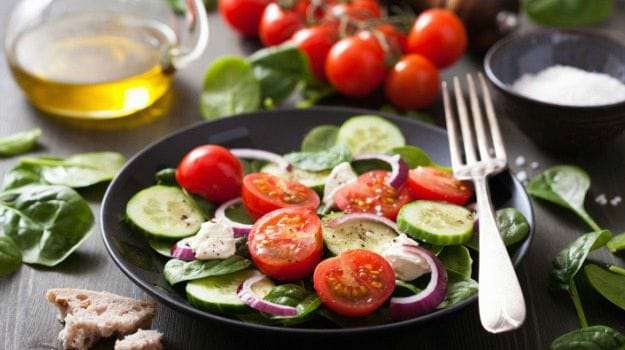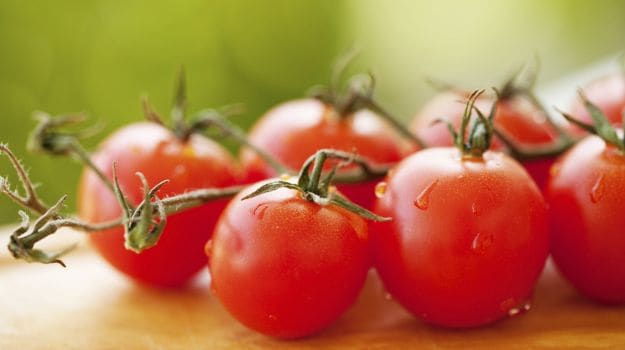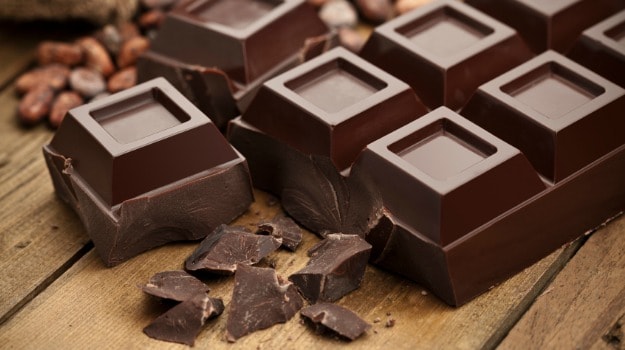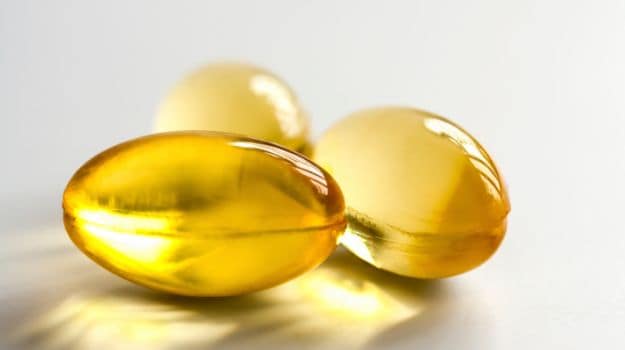
We have all been out on a hot scorching day with an expected sunburn and a painful red tan, which also means more wrinkles, discoloration and sun damage in the pipeline. Think about it: The first signs of sunburn such as redness, swelling and pain are also the hallmarks of inflammation. So what do you do? How do you protect yourself during thishot season because staying indoors is not an option? There is good news – Mother Nature provides certain nourishing foods that can safeguard you from within. If you load up onantioxidant-rich foods, you’ll be providing your body with the weapons it needs to fight the signs of ageing, thereby protect the skin.
Here are some power foods that can give you added UV protection this summer –
1. Tomatoes
Imagine a young plant sitting in an open field, baking under a blazing sun. Instead of shriveling in the heat, the little fruit thrives. Why? Because it’s filled with carotenoids andpolyphenols, the two classes of powerful plant-based antioxidants whose primary function is to protect chlorophyll from photo damage (i.e. they keep fruits and vegetables from getting sunburned).
As it turns out, these antioxidants do the same for your skin. All red fruits and vegetables, including peppers, papaya, guava and watermelon contain the antioxidant lycopene. Tomatoes particularly contain most amount of it, especially when it is being cooked as it helps release lycopene from the cells. In fact, research shows that the body absorbs four times more lycopene from tomato paste than from raw tomatoes. And since lycopene is a fat soluble nutrient, mixing cooked tomatoes with a natural fat helps the intestines absorb it even more.

2. Green Tea
Research shows that green tea can protect the skin from sun burn and skin cancer after exposure to UV light. One recent study showed that applying green tea directly to the skin 30 minutes before UV exposure greatly reduced the resulting sun tan/ burn and DNA damage caused by UVB (burning) rays. In yet another study, participants were given 250mg of green tea polyphenols twice a day (1 cup of green tea has between 50- 100 mg of polyphenols). Six months later they reported significant improvement in overall sun damage, redness and broken capillary veins, suggesting that green tea can actually reverse sun damage. So now you have a reason to order unsweetened green tea at your favourite cafe.

3. Eggs
It’s not just fruits and veggies that have free radicals fighting potential. Eggs, especially organic eggs, contain high concentration of antioxidants too. In a German study, researchers found that the concentration of carotenoids in the skin increased 20% after just one week of eating two organic eggs per day. So go on and scramble an egg with tomatoes and olive oil and enjoy!

4. Chocolate
Here’s another reason to eat chocolates! Researchers have found that cocoa with high concentration of flavonoids – the type of antioxidant found in cocoa beans – can protect the skin from sunburn and other signs of sun damage. Now that does not mean you can gorge on any and every type of chocolate. Chocolate is measured by the amount of raw cocoa it contains: the higher the percentage of raw cocoa, the greater the antioxidant quality. Choose the highest cocoa percentage you can. My personal favourite is the 70% dark chocolate. A point to note: since chocolate is relatively high in calories and fat, limit yourself to about 100 calories from it in a day.

5. Red Wine
Red wine has polyphenol antioxidants, which protects you from UV damage. According to a recent research, red wine can protect you from sun burn even after you have spent a day out on the beach. Polyphenols are concentrated in the skin of the grapes, this is also why red wine which is fermented along with the skin, has more antioxidants than white wine.

6. Fish and Fish Oils
Research shows that fish oils can boost the skin’s natural immune system and ability to fight off cancer as well as reduce inflammation, the contributing factor in sunburn and sun related rashes. In a recent study, participants who took 3g of mixed omega fatty acids per day, more than doubled their body’s natural SPF after six months. Flaxseeds are one of the best sources of omega-3 fatty acids; vegetarians could include flaxseeds to get this protection.

About the Author:
Shilpa Arora ND is a renowned Health Practitioner, Nutritionist and certified Macrobiotic Health Coach. She has to her credit Doctorate in Natural Medicine. She is currently based in Delhi NCR region, successfully running her Nutrition Studio with individual consultations, offering life style programs supported by the most up-to-date clinical research.
Disclaimer:
The opinions expressed within this article are the personal opinions of the author. NDTV is not responsible for the accuracy, completeness, suitability, or validity of any information on this article. All information is provided on an as-is basis. The information, facts or opinions appearing in the article do not reflect the views of NDTV and NDTV does not assume any responsibility or liability for the same.
[“Source-Livemint”]
